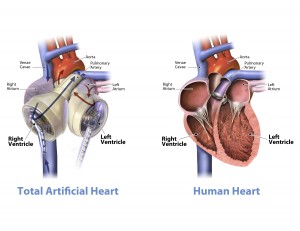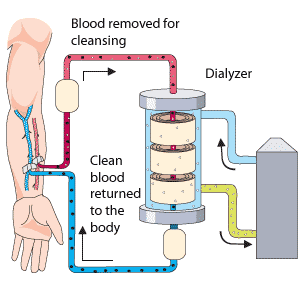It is unlikely that anything in line with scientific research can be manipulated with today’s modern technology in order to answer the call of making organs readily available (besides xenotransplantation), however there is promise in biomedical engineering research and innovations including:
-
Dialysis – Able to treat long term end-stage organ failure
- Artificial hearts – Still in the beginning phases but has shown promise in terms of short term success (bridging the gap between heart failure and organ donor availability)
- Devices enclosing islets for diabetics
While it is not likely, according to many sources,that these alternatives will significantly reduce the need for organ donations it is nonetheless important to point out that technology is evolving in ways that have the potential to reduce a portion of these needs.
Further, in accordance with the CCAC (Canadian Council on Animal Care), the basic goals and principles behind approaching any animal welfare issues are:
- Reduction – Refers generally to reducing the number of animals involved in scientific research for human gain (This speaks directly to preventative measures in health education to limit serious health problems in the general public).
- Refinement – Improving husbandry techniques in order to provide the least suffering to animals involved in research
- Replacement – The idea behind replacement is to satisfy the needs and demands without the use of animals (Biomedical Technology)
While reduction and refinement are not direct or clear cut alternatives to xenotransplantation, they provide a potential start to the decrease in animal use, hopefully eventually leading directly into complete replacement.
Of course, resources should aptly be provided to and concentrated on the prevention of serious disease and illnesses by promoting health education. Below are three of the most common unhealthy habits, leading directly to organ failure:
- Smoking which damages lung tissue
- Excessive alcohol consumption which has detrimental affects on the liver
- The excessive intake of animal fats (which damages arteries by way of cholesterol build-up, increasing the chances of heart attack, stroke etc.)
Reducing or completely eliminating the intake/consumption of these three is in many regards the first step, the preventative step. Therefore, while this will not solve the problem of organ shortage in the short term, in the long term the idea is to have promoted health and well-being in an effective manner so as the demand for invasive surgery, and subsequently organ donation, is diminished.


